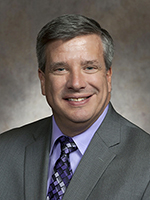An Attack on Student Journalism?
What lesson does legislators attack on the Center for Investigative Journalism teach young journalists?
The other day my boss, Andy Hall, responded to an email from the Simpson Street Free Press.
This always readable, often impressive paper put out by young people in some of Madison’s poorest neighborhoods had asked Hall about state lawmakers’ surprise move against his group, the Wisconsin Center for Investigative Journalism.
Hall, the Center’s executive director, had a pile of interview requests from all over the nation. Yet he took time to respond to these young journalists.
Around 6 a.m. on June 5, toward the end of a marathon session, the Legislature’s Joint Finance Committee added a provision to the state budget. It called for booting the Center from the University of Wisconsin and barring university employees from “doing any work related to the Center” as part of their duties.
It passed with minimal discussion on a 12-4 party line vote, with Republicans in the majority. It could still be removed by the Legislature or vetoed by Wisconsin Gov. Scott Walker.
In his reply to the Simpson Street Free Press, Hall said this provision, for which no lawmaker has claimed credit, would “diminish opportunities for students, who have won state and national acclaim for investigative news coverage they have produced with the Center’s professional staff.”
The Center, which opened in 2009, seeks to increase the quality and quantity of investigative journalism in Wisconsin while training the next generation of investigative journalists. It is nonprofit, nonpartisan and, as readers of this column know, committed to accuracy and fairness. Its goal is to inform, not persuade.
Funding for the Center comes from private grants and donations, all publicly disclosed. It has rent-free access to two small rooms in the UW-Madison School of Journalism and Mass Communication, in exchange for being a resource to faculty and students.
The Center spends $40,000 a year to hire student interns. It works with journalism classes to produce stories, like a recent series on Wisconsin parks. Its four full-time staff members, myself included, come into classrooms to teach skills, like how to use public databases to track campaign financing.

Rep. John Nygren
At a June 6 press conference, I asked state Rep. John Nygren, R-Marinette, whether it should matter to lawmakers that the Center provides what the UW considers to be a valuable role. His answer was no.
“That’s a decision they made,” responded Nygren, the Joint Finance Committee co-chair. “We believe otherwise. That’s why we made the decision we did.”
In recent days, the Center has received an outpouring of support from the UW, journalism groups and others, of all political persuasions.
“Who thought this was a good idea?” demanded Milwaukee radio host Charlie Sykes, calling the move “petty, vindictive and dumb.” He praised the Center’s reporting, which he noted had been cited by conservatives like himself.
State Sen. Dale Schultz, R-Richland Center, had this to say, on Wisconsin Public Radio: “It is the height of arrogance, and everybody who voted for that should be embarrassed. It smacks of the kind of tactics you would expect from Vladimir Putin or Hugo Chavez — not in Wisconsin.”
On the other side are the blogger who referred to the “Center for Investigative Propaganda” and the state lawmaker quoted as saying “a large portion of what they do is hits on conservatives.”
Such statements are demonstrably untrue, as anyone can see from looking at the Center’s work, all of which is archived online. But it is, sadly, part of what young journalists at the UW, and the Simpson Street Free Press, need to learn: Even journalism that aspires to the highest standards of fairness and accuracy can come under attack from people who care about neither.
Bill Lueders is the Money and Politics Project director at the Wisconsin Center for Investigative Journalism (www.WisconsinWatch.org). The project, a partnership of the Center and MapLight, is supported by The Joyce Foundation.
The Center collaborates with Wisconsin Public Radio, Wisconsin Public Television, other news media and the UW-Madison School of Journalism and Mass Communication. All works created, published, posted or disseminated by the Center do not necessarily reflect the views or opinions of UW-Madison or any of its affiliates.
-
Wisconsin Lacks Clear System for Tracking Police Caught Lying
 May 9th, 2024 by Jacob Resneck
May 9th, 2024 by Jacob Resneck
-
Voters With Disabilities Demand Electronic Voting Option
 Apr 18th, 2024 by Alexander Shur
Apr 18th, 2024 by Alexander Shur
-
Few SNAP Recipients Reimbursed for Spoiled Food
 Apr 9th, 2024 by Addie Costello
Apr 9th, 2024 by Addie Costello





















